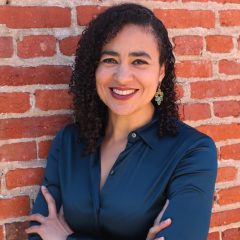Even as DC’s economy grows, it is marked by stark racial inequalities in income, wealth, and poverty. Affording the basics, such as rent, food, and utilities is a daily challenge for many DC residents. This is disproportionately true for Black residents, one in five of whom live in poverty. Income support programs help people make ends meet and boost long-term education and health outcomes for children. By helping residents pay their bills, care for their children and possibly save for a rainy day, DC can help create more stability and a future of shared abundance.
Featured Publications & Resources
In The News
Budgeting for an Inclusive Economy
730DC • November 18, 2021 • Inclusive Economy / Income & Poverty / Revenue & Budget
Blog
Mayor Bowser Can and Should Continue Helping DC Residents Pay Rent and Utility Bills
By Emily Gallo • November 10, 2021 • Affordable Housing & Ending Homelessness / Homelessness / Income & Poverty
Budget Resource Page
The District Moves Toward a More Inclusive Economy for Black Workers, Communities, and Businessowners
By Doni Crawford • October 18, 2021 • Inclusive Economy / Income & Poverty / Jobs & Training / Revenue & Budget
Latest on this Issue
Blog
DC Contends with Extreme Child Poverty Disparities by Race, Place, and Age
By Connor Zielinski • March 10, 2025 • Income & Poverty
Blog
Poverty Reduction Stalled While Racial and Income Inequality Persisted in 2023
By Tazra Mitchell • September 16, 2024 • Income & Poverty
Fact Sheets
DC Can Boost Income to Tackle Child Poverty
By DC Fiscal Policy Institute • May 23, 2024 • Income & Poverty / TANF & Income Support








